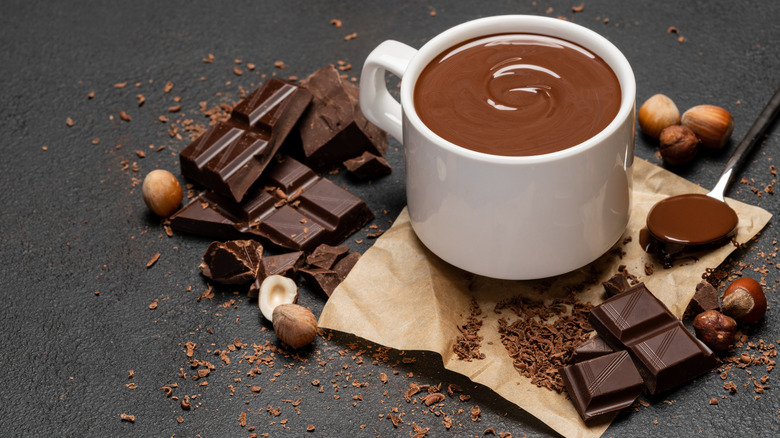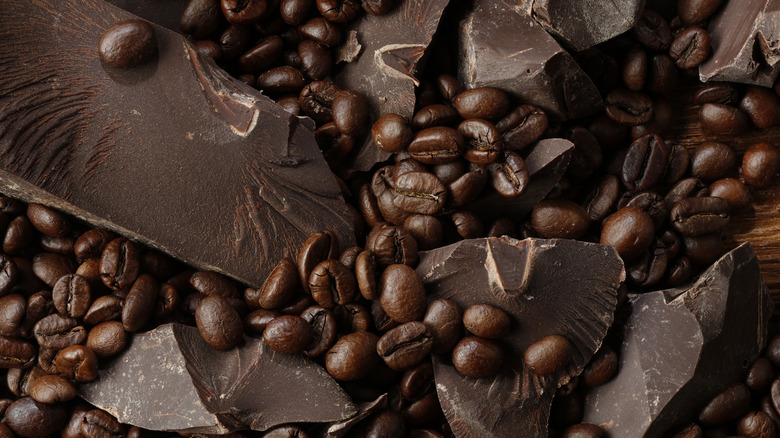How Dark Chocolate Can Affect Your Medication
Dark chocolate is known by those with a sweet tooth as a healthy alternative to curb their chocolate cravings. Dark chocolate — or chocolate containing at least 70 to 85 percent cocoa — is jam packed with antioxidants, as well as fiber, iron, magnesium, copper, manganese, and more (via Healthline). Dark chocolate is also linked to a lower risk for heart disease.
However, this sweet treat should be consumed with caution when taking certain types of medications. The U.S. Food and Drug Administration says chocolate can be problematic with monoamine oxidase (MAO) inhibitors used to treat depression, such as Nardil (phenelzine) or Parnate (tranylcypromine). When combining the two, you may experience a spike in your blood pressure that could be dangerous.
Another reason chocolate can cause negative drug interactions is due to its caffeine content. Dark chocolate contains the most caffeine compared to milk or white chocolate, with 12 milligrams per ounce.
What to do if your medication has possible drug interactions
Milk chocolate contains 9 milligrams per 1.55 ounces, while white chocolate contains no caffeine (via Healthline). The easy rule of thumb to remember is the darker the chocolate, the higher the caffeine content. This caffeine in dark chocolate increases the effect of stimulant drugs like Ritalin (methylphenidate), or on the other hand, can decrease the effectiveness of sedative-hypnotics such as Ambien. This means chocolate would affect your capability of sleeping.
So what does this mean for chocolate-lovers who are on prescription medication that can interact with dark chocolate? The best bet is to discuss the risks and your chocolate intake with your medical team.
It is also important to educate yourself on what your prescription contains, its side effects, and possible drug interactions. When you are prescribed a new medication, you should ask your doctor about any food, beverages, dietary supplements, and other drugs you should avoid. You can also speak to your pharmacist if you have specific questions about your prescription.


